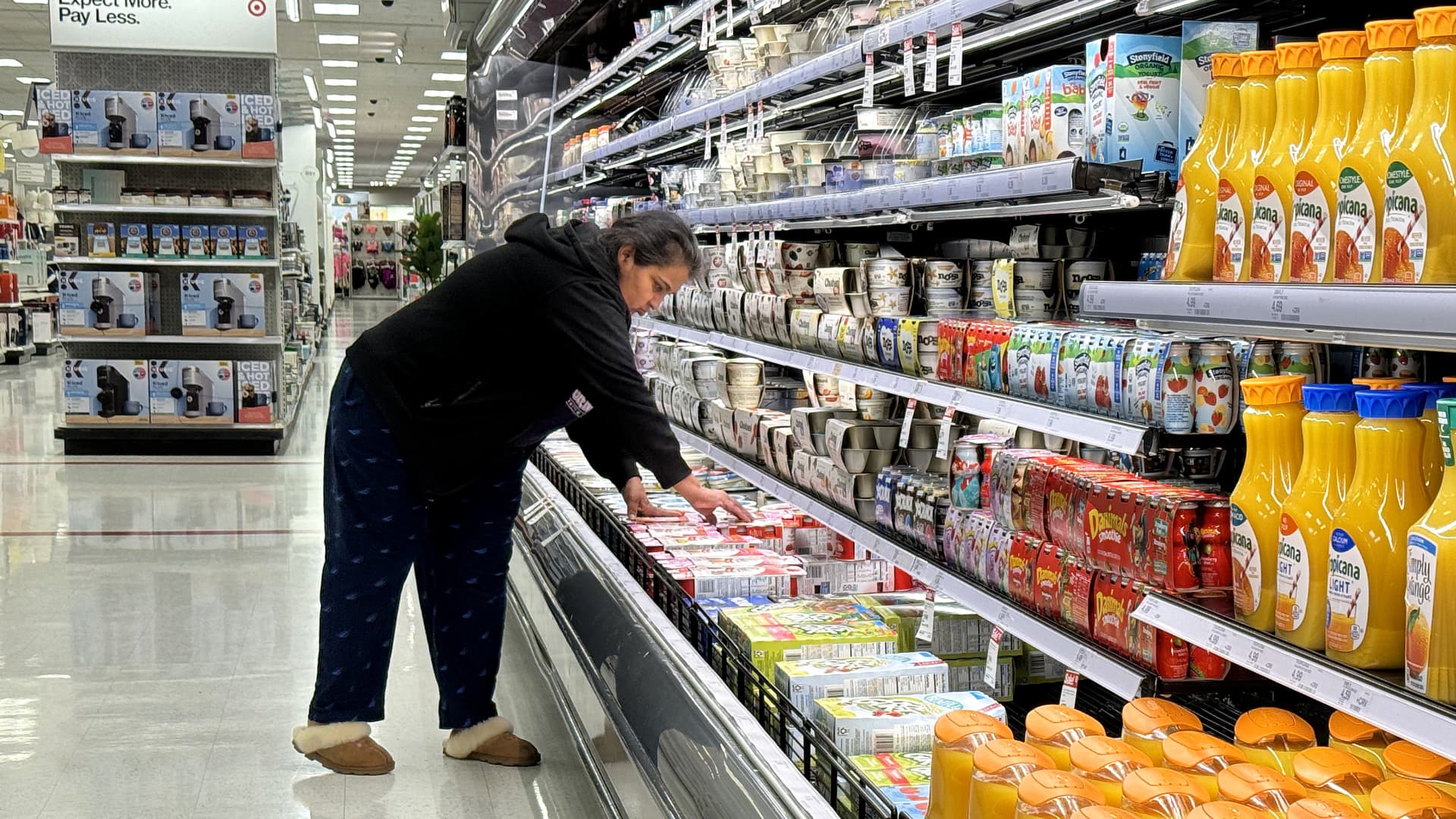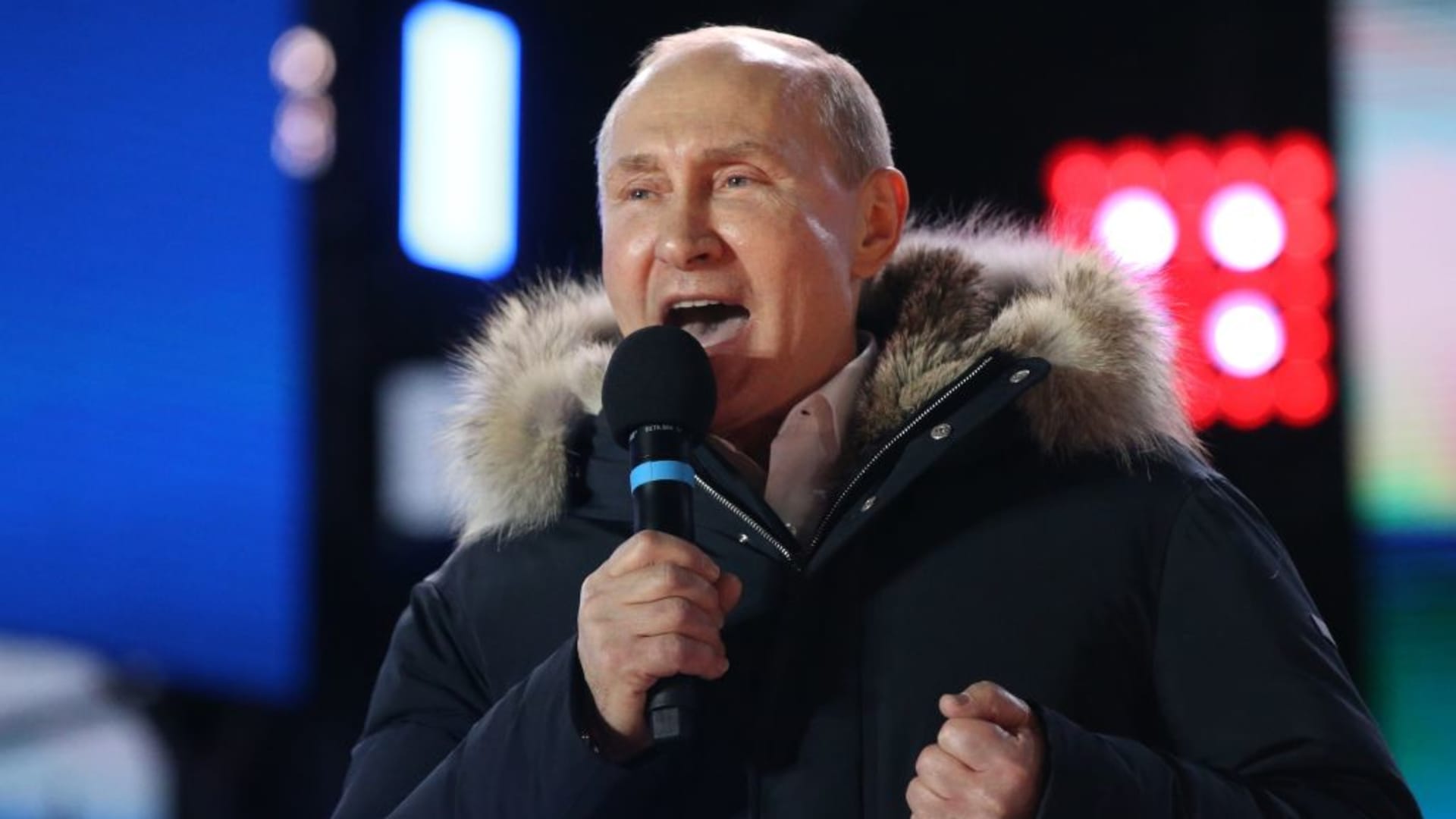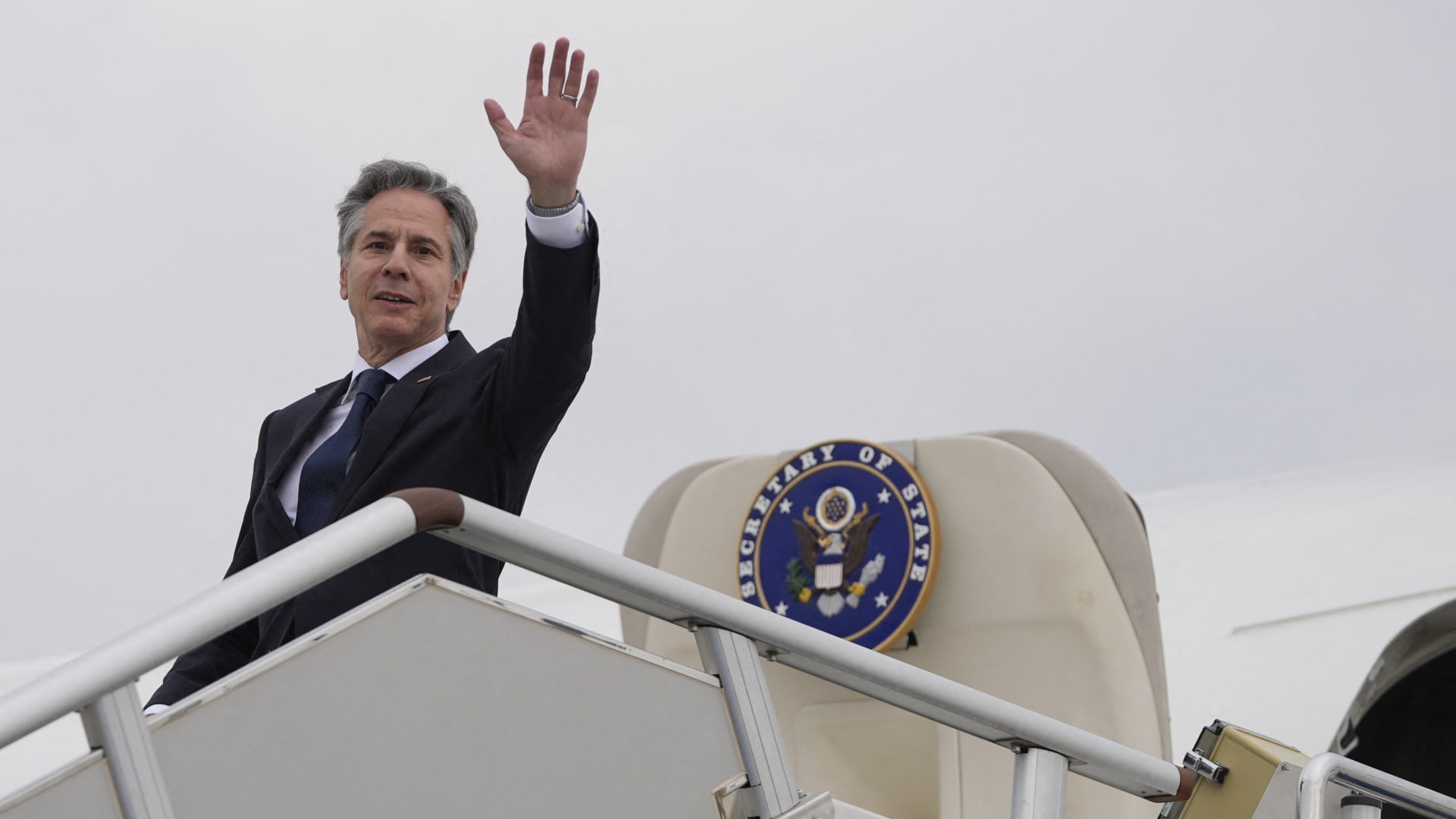Vladimir Putin at a rally on Manezhnaya Square near the Kremlin on March 18, 2018.
Mikhail Svetlov/Getty Images
There are no surprises about who will win Russia’s presidential election next weekend, with incumbent Vladimir Putin expected to win a fifth term in office and stay in power until at least 2030.
The heavily staged vote, which runs Friday through Sunday, is not expected to bring any nasty surprises for the Kremlin, which told CNBC months ago it was confident Putin would win the vote handily.
This is particularly the case in a country where Russian opposition figures are neither on the ballot nor in mainstream politics, and most activists have fled the country. Those who remained were arrested or imprisoned, or died under mysterious circumstances, as was the case with imprisoned opposition leader Alexei Navalny. The Kremlin denied having any involvement in his death.
In the 2024 election, there is no doubt who will win the election. Putin’s name is on the ballot, along with only three other candidates who are part of Russia’s “systemic opposition”: Vladislav Davankov of the New People Party, Leonid Slutsky of the Liberal Democratic Party (LDPR) and Communist Party candidate Nikolai Kharitonov.
They are seen as symbolic political opponents whose parties generally support the government. Their inclusion on the ballot is intended to add a degree of prestige to the vote and give a semblance of plurality to Russia’s effectively autocratic political system.
Putin has been in power as president or prime minister since late 1999 and shows no signs of being willing to relinquish control of the country. He is supported by a loyal inner circle and continues to enjoy the support of the Russian security services.
However, due to the Kremlin’s nervousness about a possible surprise in the elections, even candidates who were only marginally representative of the “non-systemic opposition”, such as anti-war candidates Yekaterina Duntsova and Boris Nadezhdin, were barred from taking part in the election by Russia’s Central Election Commission. The ban was widely viewed as politically motivated.
Looking for a landslide
More than 110 million Russian citizens are eligible to vote, as are an estimated six million people living in four partially Russian-occupied areas in the south and east of Ukraine, much to Kiev’s dismay.
According to the independent Levada Center, Putin’s approval rating in Russia is at its highest level since 2016, at 86% in February, although analysts such as Andrei Kolesnikov, senior fellow at the Carnegie Russia Eurasia Center, note that Putin’s “power model” is heavily dependent on two unstable ones Basic pillars: “passive conformism and fear”.
Both factors have certainly intensified since Russia invaded its neighbor Ukraine in February 2022, and any perceived criticism of Russia’s “special military operation” – portrayed as a glorious and patriotic defense of the Russian homeland – may result in citizens being sent to prison come. The fact that an estimated 315,000 Russian soldiers were wounded or killed in the conflict is not an issue that the Kremlin will address publicly; Russia does not publish death or casualty figures.
Ukrainian soldiers fire on Russian positions with D-30 artillery towards Klishchyivka as the Russo-Ukrainian war continues in Donetsk Oblast, Ukraine, August 12, 2023.
Diego Herrera Carcedo | Anadolu Agency | Getty Images
The Kremlin is hoping for high voter turnout in this election – the first time a presidential election has been held over three days – and is hoping for a significant victory for Putin to legitimize the war, analysts note.
“The Kremlin is aiming for an election result that would demonstrate overwhelming public support for Putin and therefore for his domestic and foreign policy agenda,” commented Andreas Tursa, consultant for Central and Eastern Europe at consulting firm Teneo, on Thursday.
“The Kremlin is using the election campaign to reaffirm Putin’s legitimacy, mobilize public support for his policies and demonstrate unity and resolve to his external opponents,” he added, with the Kremlin hoping for a “landslide victory.”
“According to official information, Putin received 77.5% of the valid votes in the 2018 presidential election, and the turnout was 67.5%. This year, both numbers could be even higher,” he said.
“Putin faces no real competition in the vote and, if necessary, electoral authorities have various tools at their disposal to achieve the desired turnout and result. However, the advantage is to influence the result as little as possible,” he said.
Widespread criticism
Rising authoritarianism in Russia and the erosion of the country’s last vestiges of democracy during Putin’s time in office have sparked widespread criticism and consternation. Therefore, it is no wonder that the 2024 vote has already been condemned by opposition activists and neighboring Ukraine.
Kiev spoke harshly about the elections that took place this week in Crimea, Zaporizhzhia, Kherson, Donetsk and Luhansk. There have already been reports of coercion and illegal voting practices, including evidence of armed soldiers accompanying pro-Russian officials and holding ballot boxes as they went door-to-door collecting votes.
Ukraine’s Foreign Ministry said in a statement on Thursday that Russia’s attempt to “imitate” the presidential election on its territory “shows the Russian Federation’s continued blatant disregard for the norms and principles of international law.” She described the votes as illegal and called on citizens in the occupied regions not to take part.
Russian opposition activists, most of whom are themselves in exile to avoid arrest, detention or attack, have also condemned the election.
Yulia Navalnaya, the widow of late opposition leader Alexei Navalny, implored Russian voters to vote for “any candidate except Putin” and called on citizens to vote en masse at noon local time on March 17, with the intention of closing the polls overwhelm. She also called on the West not to recognize the election results. Kremlin opponents have also called on supporters abroad to protest in front of Russian embassies next Sunday.
Dmitrii Moskovii, an opposition activist and representative of the Russian Democratic Society in London, said the protests had offered people a chance to show their opposition to Putin and the war.
““When we talk about Russia, we are always talking about an almost authoritarian regime where there is no freedom of choice, we are talking about an election that is obviously and certainly rigged by the Russian authorities,” he told CNBC on Thursday.
Russian President Vladimir Putin gestures during a meeting with participants of the International Youth Festival on March 6, 2024 in Sirius Territory, Sochi, Russia. Putin is visiting the Stavropolsky and Krasnodar regions in the south of the country ahead of presidential elections scheduled for March 15-17.
Contributor | Getty Images News | Getty Images
The appearance of free and fair elections appears to have little concern for the Kremlin. Analysts point out that the 2024 vote will be held with far less scrutiny than previous elections, reflecting Russia’s increasingly indifferent attitude to international democratic norms.
“Recent changes to Russian electoral laws make it virtually impossible to conduct meaningful surveillance and have significantly limited the role of the media,” Anna Caprile, a policy analyst at the European Parliament, said in an analysis on Wednesday.
“The reappointment of Vladimir Putin seems unstoppable. However, the Kremlin’s goal is not just victory, but a landslide result, both in turnout and vote share. “This would legitimize Putin’s legacy and his war of aggression, relegating the remaining opposition to an even more marginalized role and allowing Putin to unhindered implement his vision for the next six years,” she noted.
Source link
2024-03-15 06:11:05
www.cnbc.com








